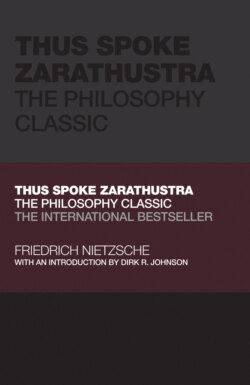Читать книгу Thus Spoke Zarathustra - FRIEDRICH NIETZSCHE, Friedrich Nietzsche - Страница 29
ZARATHUSTRA'S NEW PHILOSOPHICAL SYSTEM?
ОглавлениеClosely related to the first interpretation is one that believes that its three central metaphors – the Übermensch, the will to power, and the eternal return – were intended to be the pillars of a future philosophical system. In the popular imagination Nietzsche is most identified with those concepts, and it is no small part due to the influence and prophetic tenor of this work.
While Nietzsche considered Zarathustra to be his greatest achievement, his high estimation of it does not need to imply that he saw it to be the foundation for a future philosophical system – or philosophy at all. There is also no indication that he meant for its three most famous concepts to be extracted from it and to become the dominant constituents of his philosophy. Instead, he inserted the concepts into a suggestive narrative whole, and through the text he both plays with and subverts the metaphors that it seems to promote. Most of all, the concepts are intimately connected to the narrative strategies and objectives of this specific literary text.
As noted, Nietzsche stated that he had chosen his prophetic protagonist for a reason. As the first person to introduce morality to the world, Zarathustra would need to be the first to uncover the error. As the narration progresses, Zarathustra becomes aware that the higher moral ideal of the Übermensch he proposed is based on residual disgust with the way the human being is. His vision is a projection of a being that can transcend and overcome the pettiness of the current human type.
But Zarathustra harbors a spirit of gravity that weighs him down and undermines his confidence. He must confront the pain and anguish related to traumas in his past. No longer a self‐assured mighty prophet, Zarathustra is now a specific individual filled with all‐too‐human resentment.
By finding the courage to call forth his thought of the eternal return, Zarathustra must recognize that his specific life, and all the pain associated with it, cannot be redeemed through the hope of a higher ideal. Rather, his life is the one and only life that he must affirm.
He now also sees that all so‐called great men have not had the courage to embrace their lives but have sought out ideals. These were flights from the reality of life. The thought of the eternal return confronts him with the specter that life will not progress to higher, to better, but will eternally return just the way it has, with all its heartache, bitterness, and secret regret – but also with its transitory, sublime moments. Only with this recognition and its affirmation can one overcome the basis for morality and the spirit of resentment that underlies it.
